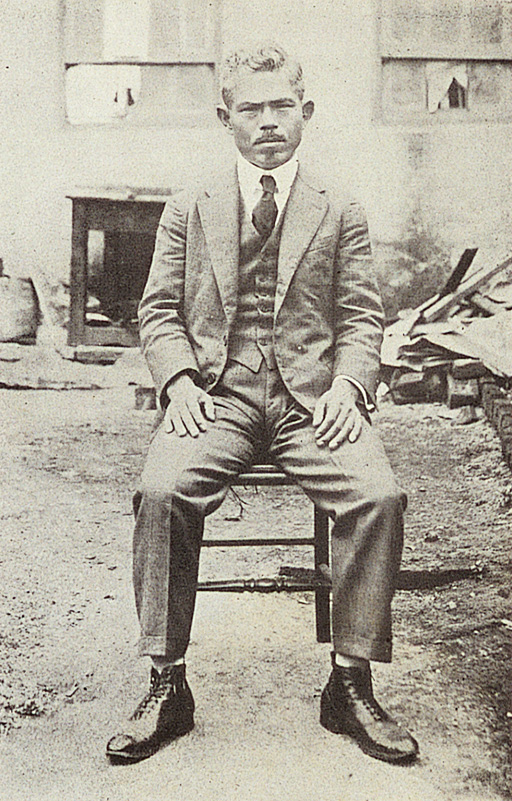Saku Miura was born in Ehime Prefecture and was a part-time teacher at a junior high school in Kashiwazaki, Niigata Prefecture. He was said to have arrived in Brazil on a Brazilian navy training ship in December 1908, and after serving as a judo instructor for the Brazilian navy, purchased "the Nippaku Shimbun Sha" (Nippaku (Japan Brazil) Newspaper Company) and became its president in 1919. He was popular amongst Japanese residents for his strong anti-authoritarian and uncompromising stances written in distinctive style called "henaburi". His uncompromisingly sharp tongue and criticisms, however, also earned hostility from some parts of the Japanese population, and several attempts were made to have Miura deported. In May 1939, the Brazilian authorities ordered a ban on the publication of the newspaper, and the newspaper was closed, then Miura himself was deported in July. Miura returned to Japan after travelling in Europe; and he was frequently detained by the military police. He was again imprisoned in May 1945 and was released after the war on October 10 through the SCAP Human Rights Directive, but he had become ill while imprisoned and died on 26. Reference materials include a critical biography by Takashi Maeyama "Fukyo no Kisha – Burajiru no Shimbunjin Miura Saku no Shogai" (A critical journalist deviating from the community norm– a life of Brazilian newspaperman Miura Saku), published by Ochanomizu Shobo in 2002.
